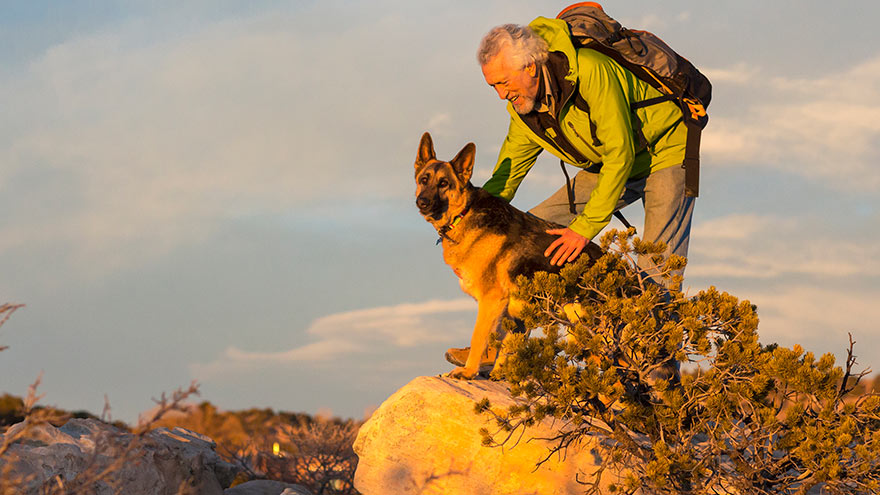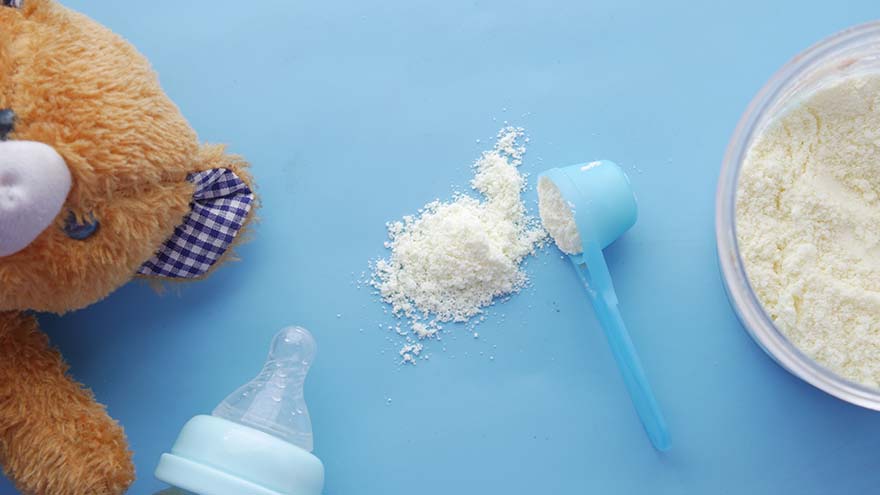Search
-
Know Before You Go
Grab your skis, goggles, coat – and don’t forget that helmet. Skiing and snowboarding are fun activities for all ages but come with the risk of injury. Read on for tips to make it a safe day on the mountain. Daydreaming about your next trip to the slopes? We talked to Jared Worchel, DO, about his top tips for gearing up. Get the Gear Before you head out to ski or snowboard, make sure you have all your gear ready and in good condition. Everything should fit correctly so that it keeps you as safe as possible. Wearing proper gear will also help keep you warm. Items to check on before you head out include: Boots Bindings Goggles Poles Helmet Outwear Gloves Pack water and snacks in case the drive takes longer than you except due to weather or traffic. You’ll also want to make sure that your cell phone is fully charged before you head out in case you need to contact friends of staff for help while on the mountain. Helmet, Helmet, Helmet Having a helmet that fits correctly is the most important thing you can do to prepare for a safe day on the mountain. According to a National Ski Areas Association study, helmet use has increased over the last 15 years, with 80 percent of skiers and snowboarders using helmets. Schubert would like to see that number increase to 100 percent. “If you have a head injury it could take you out for the rest of your life,” Dr. Worchel said. “The most important things to think about when fitting a helmet are making sure that it really fits you appropriately. You want to go into a store and try on as many different helmets as they have available. I know it’s tempting to buy one online, but you’re never going to know if it fits correctly.” If you are in an accident, your helmet’s fit can help protect you. Dr. Worchel has some tips on fitting: A helmet should fit low and snug over the head. Make sure that the helmet doesn’t wiggle or feel loose. Look for a model that has adjustability in the back, which will help you make sure it fits snugly. F ind a helmet with a chin strap that will help it stay in place throughout the day.
-
What You Need to Know About the Medicare Annual Enrollment Period
Don’t worry, there’s still time to enroll in a Medicare plan! You’ve probably noticed all the advertisements lately encouraging Medicare beneficiaries to enroll before AEP ends on Dec. 7. But what is AEP, and how can you ensure the best decision for Medicare enrollment? If you’ve been asking yourself this same question, you’re in the right place. Here we’ll explore some of the most important things you need to know before you choose your Medicare plan for 2023. What is AEP? AEP stands for Annual Enrollment Period, and for Medicare this takes place Oct. 15 – Dec. 7 every year. You might hear people refer to AEP as Open Enrollment or the Fall Enrollment Period. All Medicare beneficiaries can enroll during this time, and their new policy will take effect on Jan. 1 of the following year. If you’re already enrolled in Medicare Parts A & B, you can use AEP to enroll in a Medicare Supplemental or Advantage Plan. You can also choose to drop your Supplement or Advantage Plan and revert to traditional Medicare.
Read More About What You Need to Know About the Medicare Annual Enrollment Period
-
Are Blue Light Glasses Necessary?
Since the COVID-19 pandemic, more people are working from home than ever before, leading to a rise in digital screen time. Between spending eight or more hours staring at a computer screen, and some downtime hours spent looking at a smartphone or watching TV, it’s almost inevitable to feel some adverse effects at the end of a day. Blue Light Effects vs. Digital Eye Strain Blue light is all around us, and the most natural source comes primarily from sunlight. Other forms of blue light are artificial and emitted by digital screens including LED TVs, smartphones, tablets and computers. Surprisingly enough, research shows blue light can actually have health benefits such as promoting alertness, boosting memory and cognitive function, elevating mood and regulating circadian rhythm. However, studies indicate that an excess in blue light exposure can lead to depletion of melatonin production, a hormone that regulates our sleep cycles. In today’s eyewear industry, blue light glasses are one of the more popular items purchased by consumers. Companies who sell the glasses claim they help with reducing or eliminating digital eye strain, while also increasing natural melatonin secretion to get a good night’s sleep. Other than their slight yellow tint to filter out blue light, they mostly look like regular glasses and come in many different stylish frames. You can find blue light glasses through various eyewear retailers. Most adults have experienced digital eye strain. Common symptoms of digital eye strain include headaches, blurred vision, irritated eyes, and fatigue. Many believe that digital eye strain is caused by overexposure to blue light, but medical vision experts say that is not the case. “Digital eye strain is related to how we use our digital devices, not the blue light coming out of them,” says Mitchell Strominger, MD, a neuro and pediatric ophthalmologist with Renown Health. Do Blue Light Glasses Even Work? Since blue light glasses aren’t medically proven to help with digital eye strain, you’re probably wondering if they’re even worth using. “If you’re one to binge a TV show or scroll though social media before bedtime, the blue light from those digital screens can disrupt your circadian rhythm and cause you to lose sleep, which can ultimately lead to other adverse health effects,” says Dr. Strominger. “While more research is still needed, some studies have shown that blue light glasses may prevent melatonin suppression and increase quality of sleep. There is no harm in trying them out and seeing if they work for you.” As for preventing digital eye strain, Dr. Strominger shared several helpful tips: Try using the 20-20-20 rule, which entails looking away from your screen and looking at an object 20 feet away for at least 20 seconds. Sit at an arm’s length (about 25 inches) away from your screen. Adjust the brightness and contrast of your screen, especially before bedtime. There is a night mode setting on most smart phones you can use. Reduce your screen time whenever you can and give your eyes a break.
-
3 Healthcare Musts for Millennials
Many millennials are fortunate to have good health, but it’s important to be prepared for your next doctor’s visit. Here are three things that millennials should stay on top of for tracking and maintaining their health. For many millennials, doctor visits and preventive healthcare fall by the wayside. Alison Lynch, MD, a family medicine provider with Renown Medical Group says there are a few key things you can do now to set yourself up for a healthy future. 1. Establish with a Primary Care Provider Millennials are more likely to go to urgent care or consult the internet when a healthcare issue arises. While these are helpful tools, here’s a better one: a primary care provider. The benefit of establishing with a primary care provider is that your medical records, history and a baseline for your health will be documented. That means that when a problem or question comes up, your doctor will already have helpful information on file and can help you navigate your needs. Having a primary care provider is often required for prescription refills and referrals to a specialist. By establishing now, you’ll be able to get what you need in the future much faster. Make an Appointment Today 2. Protect Yourself and Your Community There are a few vaccinations and screenings that Dr. Lynch recommends for millennials. Flu Shots: These are available every year and are recommended for protecting not only yourself against the flu but also others you may come into contact with. Flu shots are usually available from August through December through your healthcare provider, pharmacies and pop-up events. Tetanus or Tdap: Most people receive a tetanus shot as a child, but it’s recommended that everyone get a booster every 10 years. If you are overdue, talk to your primary care provider or pharmacist about getting updated. Pap smear: If you’re a woman, a pap smear is recommended every three years in your 20s and every five years in your 30s. HPV vaccine: This vaccine helps prevent the virus that causes cervical cancer as well as the majority of head and neck cancers and warts. The HPV vaccine is recommended for all genders up until age 45. STD screening: Consider an STI/STD screening if you’re sexually active.
-
7 Morning Skin Care Tips for All-Day Protection
We talked to Heidi Nicol, licensed aesthetician with Renown Dermatology, Laser and Skin Care, to learn about the 7 best morning skincare tips that will provide all-day protection. “Your skin uses the nighttime hours to repair itself, secreting oils and toxins in the process,” says Heidi Nicol, a licensed aesthetician with Renown Dermatology, Laser and Skin Care. “Cleansing your skin in the morning is very important. It removes these oils and toxins and any nighttime products you use that are not suitable for daytime use — such as retinol and exfoliating acids.” Nicol’s process includes choosing the right products for your skin type, using them in the proper order and applying them correctly. Steps to Perfect Your Morning Routine Step 1: Cleanser. Use a cleanser tailored to your skin type. Many lines of products produce unique formulas for your specific skin, including dry skin, oily skin, and a combination of the two. Be sure to rinse, rinse, and rinse again! Step 2: Toner. After cleansing, you should apply a toner quickly. This is like a big drink of water for the skin and helps trap moisture into your skin and prevent evaporation. Step 3: Serum. Choose a serum that addresses your skin’s needs. If you use more than one type of serum, alternate them instead of layering. Nicol recommends using a Vitamin C serum, an antioxidant serum, and hydrating serums. Step 4: Moisturizer. Select a daily moisturizer that fits your skin type. Step 5: Eye Cream. “A good eye cream is refreshing and can help the delicate skin around the eyes,” says Nicol. Step 6: Sunscreen. This is the most essential step when it comes to protecting your face. Some sunscreens come tinted, which can replace foundation. “Do not forget to also apply to the neck, chest, and hands,” says Nicol. “It is important to reapply every few hours when you are out in the sun.” Step 7: Makeup. After you’ve completed the above steps, proceed with your make- up routine. This is a crucial step for protecting your skin. Many aestheticians recommend wearing makeup every day.
Read More About 7 Morning Skin Care Tips for All-Day Protection
-
Paola’s Story: Bringing Hope and Determination to Patient Care
You may recognize her from billboards around town or the cover of Renown's latest annual report, but what you might not know is the story behind the now-familiar face. Paola Espinoza-Patino is the oncology unit's associate nurse manager at Renown Regional, and she grounds her work in hope and determination daily. Meet Paola:
Read More About Paola’s Story: Bringing Hope and Determination to Patient Care
-
Emergency Hiking Kit Essentials
With the help of Aaron Bertalmio, MD of Renown Urgent Care, we're sharing nine essential must-have items for your hiking emergency kit. 9 Essential Items For Your Hiking Emergency Kit With more than 300 days of sunshine in Reno-Tahoe and plenty of trails to explore, you'll want to keep these essential items in your kit. 1. Water Surprisingly, this no-brainer, however, is often overlooked. Bring enough water to last for the entire adventure. This amount of water can be heavy depending on the distance, altitude or intensity. With this in mind, the next best bet is to filter or purify water from a lake or stream. Here's how: You can do this with iodine or chlorine dioxide tablets, charcoal or an ultraviolet light wand. Tip: Look for water that is moving or rushing over rocks. Having enough water or filtration cannot be underestimated. "If you become injured and need to wait for help, you can only last about three days without water," Dr. Bertalmio says. 2. Food Meals-Ready-to-Eat (MREs) or dehydrated food pouches are essential, ensuring you have plenty to eat if you're outdoors longer than expected. 3. Maps Bring a printed map, compass or GPS. You can't always rely on your smartphone, so this is the perfect backup plan. 4. First-Aid Supplies Your hiking first-aid kit should change based on the type of hiking. As a basic rule, keep the following items in your pack: Fever/pain reliever Sewing kit with safety pins Tweezers Bandages and moleskin Antibiotic ointment Duct or medical tape Whistle 5. Light Source Wear or pack a small headlamp to illuminate the way if you get caught outside after sunset or in a poorly lit area. Headlamps are also great in emergencies because they are hands-free. 6. Emergency Shelter Even if you're only going out for the day, pack a low-weight emergency blanket for the trip. In other words, if the day trip turns into an overnight adventure, the blanket will keep you warm and alive in the event of cold temperatures. 7. Fire Starter Pack small tools in your hiking emergency kit to ensure an easy fire start. Waterproof matches, a knife, a lighter, or a strike fire starter are great options. Tip: Bring a multi-tool, including a knife and scissors that can be used for first-aid. 8. Layers of Clothing Mother Nature likes to change her mind in northern Nevada, and temperatures vary significantly within 24 hours. Therefore, pack a compact, lightweight waterproof and windproof jacket. This will protect you from being uncomfortably chilly and experiencing hypothermia. "Hypothermia is when your body temperature drops to a dangerously low level. You want to avoid this completely by keeping body temperature regulated outdoors and avoiding cold water immersion," says Dr. Bertalmio. 9. Sun Protection Certainly, sun protection should be part of your daily routine and an essential in your hiking emergency kit. You'll want to bring enough sunblock to reapply in direct sunlight and layers to cover exposed skin every two hours. Dr. Bertalmio reminds everyone the sun is intense in northern Nevada. "The higher altitude means an increased risk of sun-induced skin damage," he explains. "Some trails can reach above 10,000 feet, and at that altitude, UV radiation could be 35 to 45 percent more intense than at sea level."
-
10 Things You Might Not Know About Urgent Care
Visiting a Renown Urgent Care location is an excellent option when you have a non-severe condition, such as a skin rash or sore throat, can't get in to see your primary care provider in a timely manner or if you need an appointment after regular business hours. To learn more about the ins and outs of Urgent Care, we spoke to David Lemak, MD, Division Chief Urgent Care, who let us know some reasons to visit Urgent Care, how to make your visit as efficient as possible, and more. Remember, for a life-threatening emergency, call 911 immediately! Urgent Care is similar to a Primary Care provider Urgent Care providers can do most of the things your Primary Care provider can do, with visits billed the same as an office visit. If you could put the word “severe” in front of your reason for visiting Urgent Care, please go to the emergency department right away For a list of what is an appropriate visit for Urgent Care click here. Also, we recommend that babies 2 months old and younger should go to the Renown Children’s Emergency Department, not Urgent Care. Renown Health has 10 Urgent Care locations across northern Nevada There are five locations in Reno, two in Sparks, one in Carson City, one in Fernley and one in Fallon. For a complete list of Renown Urgent Care locations, click here. Many of your Urgent Care needs can be accomplished via a virtual visit, from the comfort of your home or office Conditions Appropriate for a Virtual Visit Included: - Common cold and cough symptoms - Muscular, tendon or joint pain not cause by injury - Allergy or sinus symptoms - Pink eye - Urinary discomfort - Backache - Sexually transmitted illness screening - Rashes or skin sores - Medication refills (no controlled substances) Some conditions are not appropriate for a virtual visit. They include: - Chest or abdominal pain - Shortness of breath - Traumatic injuries - Dizziness or confusion - Bleeding - High fever - Persistent vomiting - Loss of vision - Substance abuse or psychiatric problems Book ahead for shorter wait times, but remember walk-ins are always available. Click here to make your appointment. This booking page conveniently shows the next available appointment at each location. Typically, mornings and late afternoon (right before dinner time) have the shortest wait times if you plan on walking in. You will be asked to wait in your car when you arrive at a Renown Urgent Care facility. While you wait (or even before you arrive), patients are encouraged to complete all registration paperwork and co-pay information online. Urgent Care is great for visits such as back-to-school physicals, camp physicals, commercial motor vehicle exams and more. Sometimes you cannot get in to see your primary care provider to meet the last-minute deadlines for certain school or work-related physicals. Many of these appointments can be completed at Urgent Care; we just recommend you call ahead and confirm that our facility offers what you need. An Urgent Care provider can virtually order a PCR COVID-19 test. Whether you have a possible exposure, are not feeling quite like yourself or need a negative test for upcoming travel, a COVID-19 test can be ordered for you. The cost for a visit to Urgent Care is dependent on your benefits, but the visit is billed the same as a standard office visit. If you don’t have insurance, a basic visit to a Renown Urgent Care will cost $125.
Read More About 10 Things You Might Not Know About Urgent Care
-
How the UNR Med Affiliation Impacts Renown's Clinical Research
The University of Nevada, Reno School of Medicine (UNR Med) and Renown Health affiliated in June of 2021. First Integrated Health System The University of Nevada, Reno School of Medicine (UNR Med) and Renown Health affiliated in June of 2021. This agreement established Nevada’s first integrated health system with missions in education, patient care, and clinical research. While there was extensive media coverage regarding the historic partnership in general, there is less information regarding the important impact to the community. In terms of clinical research, the potential benefits are endless. The School of Medicine has a very successful program in molecular bio sciences. That means they have a plethora of brilliant minds working on the smallest components of life related to body systems and disease. With the affiliation, there is a distinct opportunity to bridge some of these important findings happening on campus and translate them into care protocols for the patients seen in the community. Making connections between the cellular basics to the physical manifestations of conditions is a key opportunity of the affiliation. Additionally, cooperative funding models for projects that fit in the translational research bucket are available to these researchers. Renown and UNR Med are poised to provide potentially cutting-edge treatments with bench to bedside research. Expanding Clinical Trials Perhaps the most important outcome of the affiliation is access to novel treatments via clinical trials. In the coming years, Renown and UNR Med will work to expand their clinical trial portfolio in an effort to provide a clinical trial option for many diseases in addition to standard of care. This endeavor will allow patients to make an informed choice about their healthcare. With novel treatments available right here in Reno, people won’t have to travel to other research institutions for similar care. This eases a tremendous potential burden on patients and families alike navigating complex illnesses like cancer. The affiliation is exciting and provides many opportunities for clinicians (present and future) and the community. Renown's Clinical Research Office is thrilled to be a part of this historic time and are enthusiastic to communicate our successes and opportunities to the community. We sincerely look forward to contributing to the vision of “a healthy Nevada.”
Read More About How the UNR Med Affiliation Impacts Renown's Clinical Research
-
How to Navigate the Baby Formula Shortage
With the ongoing baby formula shortage in the United States, many parents are questioning how they can safely feed their babies and keep them healthy. Pediatrician Karen Wagner, APRN with Renown Medical Group answers some questions on what to do (and not to do) during this challenging time. What if I cannot find my baby’s formula in any stores or online retailers? If you run out of the formula you give your baby and are unable to find it through any trusted retailers, you should start by calling your baby’s pediatrician for recommendations on other safe feeding alternatives. Many pediatricians are advising that, as long as your baby has no special diet or medical needs, they can be switched to a different kind of FDA approved baby formula, if it’s purchased from a well-recognized distributor and not through an auction site or an individual you don’t know. It’s also important to make sure the formula is not expired, as it may no longer be safe or have the correct levels of nutrients. Can I make my own baby formula? Or can I dilute the formula I have? No, it is very dangerous to attempt making your own formula, as it can lead to infection and will not have the right amount of nutrients your baby needs to develop and grow. It’s also unsafe to dilute your formula supply, as doing so will cause a lack of nutrients which can lead to your baby having severe health issues down the road.
-
Suicide Risk How to Spot a Friend in Crisis
How can you tell if a friend is in trouble or struggling with suicidal thoughts? And how can you support them in finding help? Are you feeling virtually exhausted? Life is always challenging, but the mental fallout of a global pandemic is real. Contributing to the loneliness epidemic is the shifting American lifestyle. More Americans live alone (28%) now than ever before, and fewer have kids. First, let’s acknowledge this is a time of anxiety and worry for everyone. Economic uncertainty, job transitions, grief, and loneliness are a perfect storm for mental stress. Even before the COVID-19 (coronavirus) pandemic mental health was a concerning issue, now it is a relevant topic of crisis. Secondly, anyone can struggle with suicidal thoughts. Those suffering from drug addiction are especially vulnerable. In particular the U.S. is currently seeing a rise in drug overdoses by almost 18% due to the pandemic. Unfortunately, suicide is responsible for one U.S. death every 11 minutes, according to the Centers for Disease Control and Prevention. Not to mention the millions who think about it, make a plan or attempt it. It is important to remember that suicidal thoughts, plans or intent must be helped immediately. Understanding Suicide Risk To clarify, depression is not a choice. No one wishes for endless days of feeling down, sleepless nights, and feeling as if you are in a dark tunnel. Currently, one in five Americans will experience a mental illness this year. This means one of your friends is struggling, right now. Specifically, consider this: When your body feels pain it talks to your mind. When your mind is suffering who does it talk to? So, how can you tell if a friend is in trouble? According to the National Institute of Mental Health be on the lookout for some depression clues below. Signs and Symptoms of Depression Persistent sad, anxious, or “empty” mood Feelings of hopelessness, or pessimism Irritability Loss of interest or pleasure in hobbies and activities Decreased energy or fatigue Moving or talking more slowly Feeling restless or having trouble sitting still Difficulty concentrating, remembering, or making decisions Signs and Symptoms of Suicide Risk Expressing feelings of hopelessness or having no purpose Talking about feeling trapped or being in unbearable pain Talking about being a burden to others Increasing the use of alcohol or drugs Sleeping too little or too much Withdrawing or isolation Displaying extreme mood swings. Talking about wanting to die or to kill oneself (Reference: Suicide Awareness Voices of Education) How to Help a Suicidal Friend It can feel awkward to approach the subject of suicide with a friend, but take any of the above warning signs seriously. Other ways you can help are by: Encouraging self-care and making sure they take care of basic needs Listen to their worries without judgement Ask them what they need from you, then follow through with action Let them know they are not a burden Don’t minimize or invalidate their feelings Point them to helpful resources Be their advocate and get them help If someone you know is in a life-threatening crisis situation, call 911 immediately. Suicide Risk Resources: National Suicide Prevention 24/7 Lifeline: 1-800-273-8255 Ayuda En Español: (Spanish National Suicide Prevention Lifeline) 1-800-628-9454 Crisis Text Line: Text HOME (or CONNECT) to 741741 to chat with a crisis counselor 24/7 free of charge. The National Alliance on Mental Health: 1-800-950-6264 Substance Abuse and Mental Health Services Administration: (SAMHSA) 24/7 helpline 1-800-662-4357
-
When Is It Time to See a Physiatrist
Physiatry (fi-zahy-uh-tree), also referred to as physical medicine and rehabilitation, encompasses the diagnosis, prevention and treatment of disabilities or injuries related to the brain, nerves, bones and muscles. The goal of this specialty is to maximize physical functioning, greatly decrease or eliminate pain, foster independence and improve quality of life for those suffering with a disability, chronic pain and physical impairments. Who Is It for? Physiatry can help patients with functional deficits and secondary medical conditions as a result of the following: Amputation Brain Injury Osteoarthritis Spasticity and Movement Disorders Spinal Cord Injury Spine Pain Sports-Related Injuries Stroke Some of these medical conditions can often cause chronic pain or impede physical functioning, ultimately affecting a person’s overall well-being and making it difficult for them to sustain a desired quality of life.











